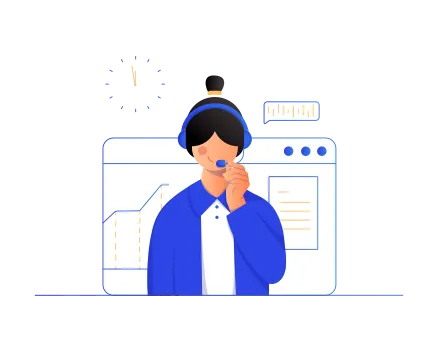
CUET PG 2025 Computer Science Important Topics: The CUET PG (Common University Entrance Test for Postgraduate courses) 2025 is a national exam conducted by the National Testing Agency (NTA) for admission into postgraduate programs at various universities across India. This exam is crucial for students who wish to pursue a Master’s in Computer Science, as it assesses their understanding of core concepts in the subject.
CUET PG Computer Science 2025 exam is scheduled to take place between 13th March 2025 and 31st March 2025. With just one month left for the exam, students should begin focusing on important topics to prepare efficiently. Understanding these key topics will help students build a strong foundation, which is essential for excelling in the exam.
Focusing on these important topics ensures that students cover the necessary syllabus thoroughly, improving their chances of success. Candidates can check the CUET PG 2025 Computer Science Important Topics list, preparation tips, complete syllabus, and more below to guide their preparation.
CUET PG 2025 Computer Science Important Topics
Knowing the CUET PG 2025 Computer Science Important Topics is essential for students aiming to succeed in the exam. These topics provide clear guidance by highlighting the areas most likely to appear on the test, allowing students to concentrate their study efforts on what is most important. By focusing on these key topics, students can avoid spending time on less relevant material, making their preparation more efficient and effective.
Preparing with the CUET PG 2025 Computer Science Important Topics enables students to prioritize their study sessions. This focused approach helps them grasp the subject more thoroughly, build a strong foundation, and avoid last-minute cramming. Additionally, it boosts confidence, as students feel better equipped and less stressed when they know they have covered all the important areas.
Therefore, focusing on the CUET PG 2025 Computer Science Important Topics will significantly enhance a student’s chances of performing well on the exam. Candidates can find the full CUET PG 2025 Computer Science Important Topics list below.
CUET PG Computer Science Exam 2025 Overview
CUET PG Computer Science Exam 2025 is an important entrance test for students who want to pursue postgraduate programs in Computer Science at central universities. The exam provides admission to courses such as M.Sc. in Computer Science, M.Tech in Computer Science, and related programs. Below is an overview of the CUET PG Computer Science Exam 2025
|
CUET PG Computer Science Exam 2025 Overview |
|
|
Aspects |
Details |
|
Exam Name |
Central University Entrance Test (Postgraduate) |
|
Conducting Body |
National Testing Agency (NTA) |
|
Exam Level |
Postgraduate |
|
Exam Frequency |
Once a year |
|
Exam Mode |
Online (Computer-Based Test) |
|
Courses Offered |
M.Sc. in IT, MCA, M.Tech in Computer Science, and related programs |
|
Exam Duration |
90 minutes |
|
Marking Scheme |
+4 for correct answers, -1 for incorrect answers, No marks for un-attempted responses |
|
Language of Exam |
English and Hindi |
|
Official Website |
exams.ntaonline.in/CUET-PG |
List of CUET PG 2025 Computer Science Important Topics
CUET PG 2025 Computer Science exam covers various topics that assess students' knowledge and skills. Students must focus on the key topics to ensure efficient preparation and maximize their chances of performing well in the exam. The table below provides a list of the important topics that students should prioritize during their study sessions.
|
List of CUET PG 2025 Computer Science Important Topics |
|
|
Topic |
Key Areas |
|
Thinking and Decision Making |
Creative thinking, verbal reasoning, finding patterns, and assessing figures & diagrams. |
|
Mathematics |
Set Theory, Probability and Statistics, Algebra, Coordinate Geometry, and Calculus. |
|
Operating Systems |
Functions, processes, memory management, synchronization, deadlock, scheduling algorithms, and file systems. |
|
Data Structures |
Arrays, Stacks, Queues, Linked Lists, Trees (Binary Tree, AVL Tree, B Tree), Sorting and Searching algorithms, Hashing. |
|
Digital Fundamentals |
Number Systems, Boolean Algebra, Logic Gates, Computer Arithmetic, Combinational Circuits, Flip-Flops, Registers, and Memory Units. |
These topics form the core of the CUET PG Computer Science syllabus, and focusing on them will help students understand the key concepts and prepare thoroughly for the exam.
CUET PG Computer Science Syllabus 2025 PDF
CUET PG Computer Science Syllabus 2025 PDF is an important resource for students preparing for the exam. It outlines all the topics covered in the exam, helping students plan their study schedule more effectively. By reviewing the syllabus, students can focus on the key areas, which will increase their chances of performing well in the exam.
Familiarizing themselves with the CUET PG Computer Science Syllabus will help candidates avoid missing any important topics and manage their time more efficiently. A well-planned study routine based on the syllabus will improve exam preparation. Candidates can download the CUET PG Computer Science Syllabus 2025 PDF using the below link.
CUET PG Computer Science Syllabus 2025 PDF
CUET PG 2025 Computer Science Preparation Tips
The following are some useful tips to help students prepare for the CUET PG 2025 Computer Science exam effectively:
-
Understand the Syllabus: Begin by carefully reading through the CUET PG Computer Science syllabus. Knowing the topics you need to study will help you plan your preparation and focus on the most important areas.
-
Create a Study Plan: Make a study schedule and divide your time between different topics. Focus on difficult topics first and spend more time on important areas like Data Structures, Operating Systems, and Probability.
-
Practice Regularly: Practice is key to doing well in the exam. Solve practice questions, previous years' papers, and mock tests. This will help you improve your speed, accuracy, and problem-solving skills.
-
Focus on Important Topics: Some topics are more likely to appear in the exam. Pay extra attention to topics like Algorithms, Data Structures, Operating Systems, and Digital Fundamentals, as they are important for the exam.
-
Revise Often: Regular revision is necessary to remember what you’ve studied. Set a time each week to go over the topics you've already learned to keep them fresh in your mind.
-
Use Standard Textbooks: Refer to textbooks and online resources to understand the concepts better.
CUET PG 2025 Computer Science Important Topics FAQs
What is the CUET PG 2025 Computer Science exam?
What are the important topics for CUET PG 2025 Computer Science?
When is the CUET PG 2025 Computer Science exam scheduled?
What is the marking scheme for the CUET PG 2025 Computer Science exam?
How can candidates prepare for the Data Structures section?

Get Free Counselling Today
Connect with our team of experts to get all your doubts resolved!






